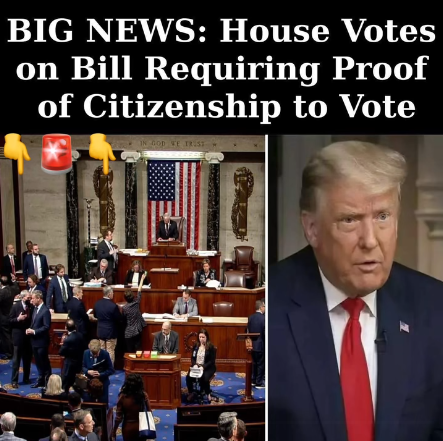Proposed SAVE Act Seeks to Mandate Citizenship Proof for Voter Registration Nationwide
A newly introduced bill—the Safeguard American Voter Eligibility (SAVE) Act—is gaining national attention for its push to standardize how citizenship is verified during voter registration for federal elections. If enacted, the legislation would overhaul the current state-by-state approach by requiring uniform federal proof-of-citizenship rules to ensure only U.S. citizens are added to voter rolls.
A Shift Toward Standardized Federal Oversight
Under existing law, voter registration requirements vary significantly across the United States. Some states demand official documents—like a birth certificate or U.S. passport—to confirm citizenship, while others rely solely on sworn declarations. The SAVE Act would replace this fragmented system with a single federal standard mandating verifiable proof of citizenship, regardless of the method of registration (in-person, online, or by mail).
Key Elements of the SAVE Act
The proposed legislation includes several notable provisions:
-
Documented Proof Required: Registrants would need to submit tangible documentation such as a U.S. birth certificate, naturalization papers, or a valid passport to register for federal elections.
-
Uniform Verification Across States: States would follow a federally mandated process to confirm the citizenship status of voters—replacing the current inconsistent guidelines.
-
Mandatory Voter Roll Audits: States would be required to actively identify and remove noncitizens who are mistakenly registered.
-
Enforcement and Oversight: Federal agencies would monitor compliance, with penalties possible for states that fail to implement the new standards.
Supporters Say It’s About Trust and Transparency
Proponents of the SAVE Act argue that requiring official proof of citizenship is essential to preserve the integrity of U.S. elections. They emphasize that the bill does not restrict citizens from registering, but rather ensures that only eligible voters are added to the rolls.
“This is about reinforcing trust in our democracy and protecting one of its most sacred institutions—the right to vote,” one supporter noted.
Critics Warn of Potential Barriers
Opponents, however, warn that the proposed rules could disproportionately impact certain populations—particularly seniors, rural residents, low-income communities, and others who may struggle to obtain necessary documents. Some also express concern over expanding federal authority into what has traditionally been a state-managed domain.
“There’s a real risk of eligible voters being excluded simply because they lack paperwork that’s hard to access,” said one voting rights advocate.
What Lies Ahead
As the SAVE Act begins its journey through congressional committees, the debate is expected to intensify. Lawmakers on both sides will weigh the potential benefits of election security against concerns about voter access and state autonomy.
If passed, the SAVE Act would mark a major transformation of the U.S. voter registration system, establishing a nationwide protocol aimed at bolstering election integrity for generations to come.
